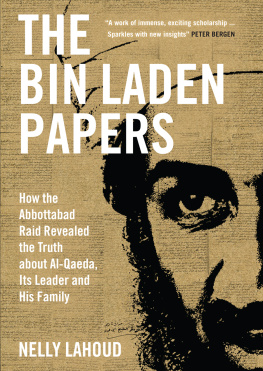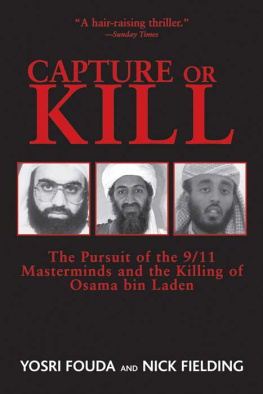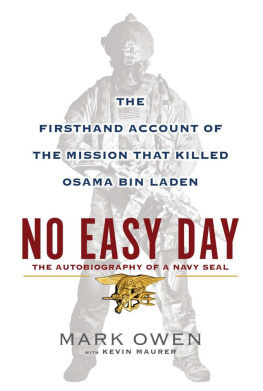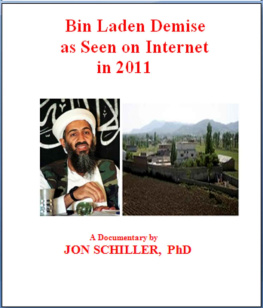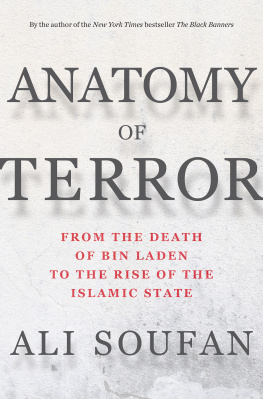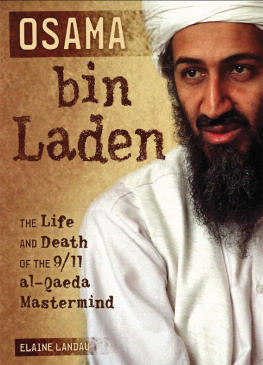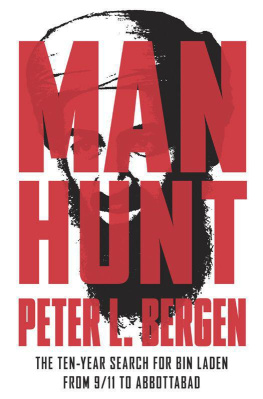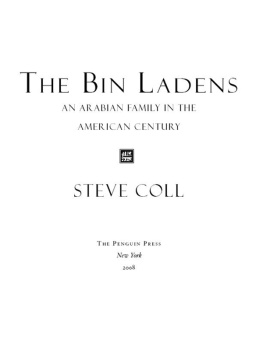THE BIN LADEN PAPERS
The Bin Laden Papers is an outstanding piece of work. Meticulously researched and presented in a captivating narrative, the book shines new light on al-Qaeda after 2001 and delivers surprising conclusions that challenge the very foundation of the War on Terror. Anne Likuski, author of Al-Qaida in Afghanistan
Terrorism expert Nelly Lahoud reveals the hidden history of al-Qaeda in the aftermath of the 9/11 attacks. The Bin Laden Papers paints a portrait of an ambitious and dedicated terrorist leader who is often out of touch with reality and unable to control the movement he helped spawn. Daniel Byman, author of Road Warriors: Foreign Fighters in the Armies of Jihad
Nelly Lahouds consummate analysis of 6,000 al-Qaeda documents is a prodigious and indispensable achievement. Deploying clinical understanding of political, religious, and family contexts, she provides a riveting inside account, the fullest likely ever to emerge, of the thoughts and motivations of a man and movement that have so malignly impacted our era. James Piscatori, co-author of Islam Beyond Borders: The Umma in World Politics
Jam-packed with invaluable new insights into the evolution of the worlds most enduring jihadi terror movement and the men and women at its heart, this is the most gripping book Ive read on al-Qaeda in a decade. Gold dust! Elisabeth Kendall, Senior Research Fellow in Arabic and Islamic Studies, Pembroke College, Oxford University

Copyright 2022 Nelly Lahoud
All rights reserved. This book may not be reproduced in whole or in part, in any form (beyond that copying permitted by Sections 107 and 108 of the U.S. Copyright Law and except by reviewers for the public press) without written permission from the publishers.
For information about this and other Yale University Press publications, please contact:
U.S. Office:
Europe Office:
Set in Adobe Garamond Pro by IDSUK (DataConnection) Ltd
Printed in Great Britain by TJ Books, Padstow, Cornwall
Library of Congress Control Number: 2021952550
e-ISBN: 978-0-300-26534-7
A catalogue record for this book is available from the British Library.
10 9 8 7 6 5 4 3 2 1
At the age of 14 or thereabouts, I decided that the curriculum of the school Baccalaureate in my native city, Beirut, Lebanon, was going to be a waste of my time. I assembled the household and presented my caseWhats the use of studying Rousseau, al-Mutanabbi, and pre-Islamic poetry?! I posited. With impeccable reasoning, I elucidated how dropping out of school and pursuing computer science at a technical college would be far more advantageous. By the time I was done, everyone was on board. Well, almost everyone. My mother, who was not fortunate to have received an education herself, merely rolled her eyes and dismissed my proposition outright.
Today, my computer skills are way below mediocre, and I so much enjoy reading Rousseau and Arabic poetry.
This book is dedicated to the memory of my late mother, Redaone of the smartest people Ive ever known.
CONTENTS
ILLUSTRATIONS
ACKNOWLEDGMENTS
I am deeply grateful to individuals and institutions who made it possible for me to complete this project. Writing a book that chronicles al-Qaedas post-9/11 history based on nearly 6,000 pages of the groups internal communications is challenging, but feasible. However, getting to this starting point required going through nearly 100,000 files of Arabic materialsa daunting undertaking. But a fortuitous meeting with Peter Bergen at a conference in Beirut in 2018 made this book possible. Peter had interviewed Usama bin Laden long before I heard the name of al-Qaedas leader, and he encouraged me to study the Bin Laden Papers in their entirety. The support of Peter and New America allowed me to work with two capable research assistantsRana Choueiry and Muhammad al-Ubaydiand go through nearly 100,000 files to identify the 6,000 pages of relevant materials. Throughout the process of writing this book, Peters mentorship, including his feedback, was invaluable; and he generously used his contacts to advance and promote my research at every opportunity.
I was exceedingly fortunate to have the support of the great historian of Islam Michael Cook during the journey of writing this book. Michael read and commented on all the draft chapters and spinoff articles. Thanks to his input, I grasped obscure historical elements which allowed me to have a richer understanding of the letters. Michael also read several letters to help me trace some technical references. The feedback of this most learnedintimidatingly soscholar immeasurably improved the content and style of the book. I hope that this final draft pleases him.
I was also fortunate that my friend Gary Apple enthusiastically and patiently read the full manuscript and spinoff articles. Gary read the materials from a general readers perspective, but the feedback of this brilliant playwright went far beyond generality. On many occasions, I revisited the letters to address Garys poignant probing, and the book is better and clearer because of his numerous insightful suggestions about structure, style, and more.
I am grateful to members and former members of the U.S. military who helped me along the way. On many occasionstoo many to countI reached out to Colonel (Ret.) Liam Collins with queries, advice, and requests, and his support was critical to advancing my work on the book. It is thanks to Liam and the broader West Point family that I had the first opportunity to work on the Bin Laden Papers when the first seventeen documents were declassified in 2012. Lieutenant Commander Kurt Albaugh helped me navigate and analyze some themes that required technical knowledge of the maritime domain. General (Ret.) Joseph Votel took the time to shed light on the potential operational impact of Bin Ladens planned maritime attacks and the military response they would likely engender. Admiral (Ret.) William H. McRaven kindly shed light on the additional length of time the SEALs spent in the Abbottabad compound to recover the electronics on which the Bin Laden Papers were saved.
I am also grateful for the input of a community of friends and colleagues with whom I discussed or shared parts of the manuscript: Mia Bloom, Stuart Caudill, Cliff Chanin, Thomas Hegghammer, Monica Khouri, Katrina Lee Koo, Stephen Menn, Debra Morgan, Ragnhild Nordas, Beryl Radin, Roland Rich, William (Bill) Roebuck, David Sterman, Marin Strmecki, Rebecca Stringer, and Heba Taha.
All my scholarly endeavors are an extension of what I have learned from my Ph.D. supervisorsBarry Hindess (d. 2018), Anthony H. Johns, and Tony Street. I am forever their student.
I am most thankful to the supportive team at Yale University Press, particularly to my editor, Joanna (Jo) Godfrey. Not only did I benefit from Jos rigorous edits and meticulous attention to detail, but her professionalism and dedication to various aspects of the book project were beyond exceptional.
My thanks also to two peer reviewers, whose feedback was most valuable. One of them turned out to be the superb scholar of al-Qaeda Anne Likuski (ne Stenersen), whose report immeasurably improved what was supposed to be a final draft.
Of course, all the books shortcomings are my own.
Last but not least, I am fortunate to enjoy the love and support of family and friends on several continents. I am especially grateful to those among them who have absolutely no interest in my research.
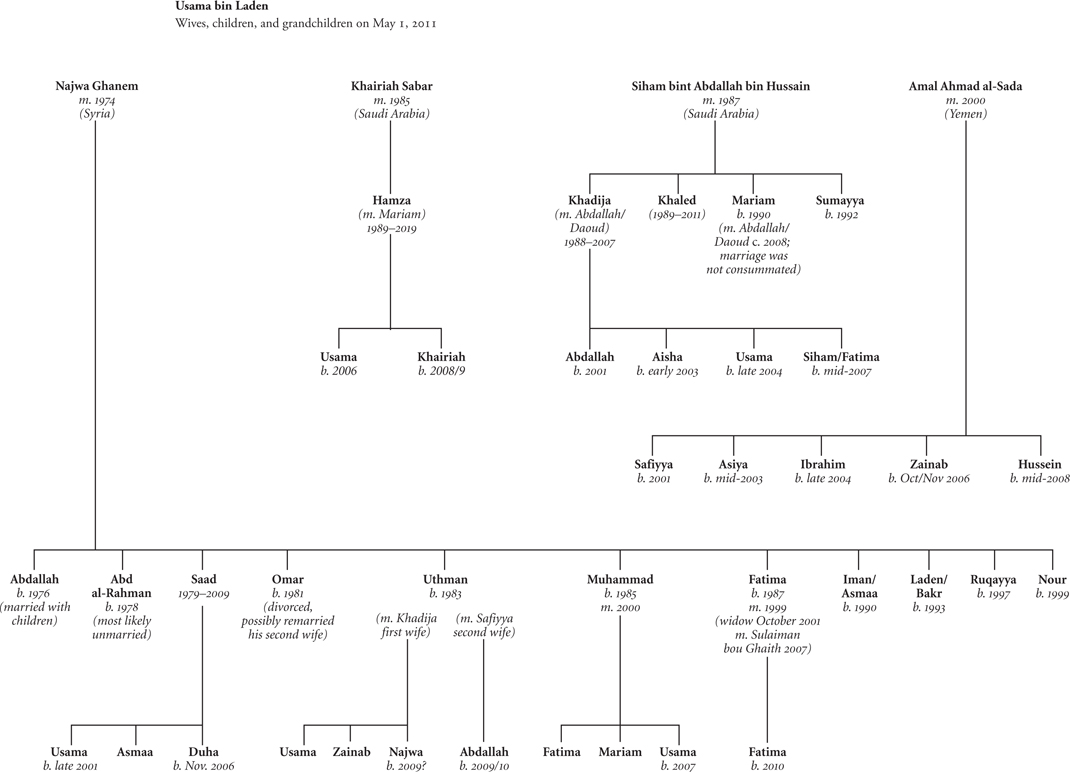
Next page
